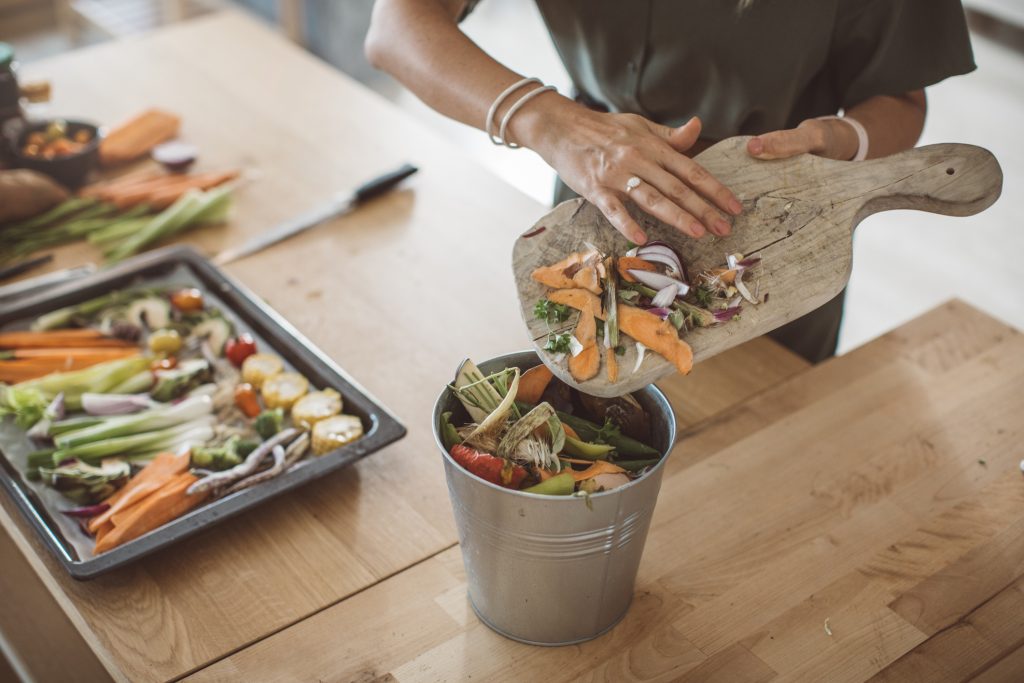有机废物:什么是有机废物?如何分类和回收?

Table of contents
您知道什么是有机废物吗? 它肯定就在您的家中,是您日常废物产生的一部分。 这是因为这种物质的产生实际上是所有生物所固有的。
为了提供帮助,我们采访了一位可持续发展专家,他向我们解释了有机废物的类型、如何对这些废物进行分类以及回收利用的重要性。
什么是有机废物?
果皮、食物残渣、树叶、木材......有机材料的种类繁多。
可持续发展专家、ESPM社会环境发展中心(CEDS)教授兼协调员马库斯-中川(Marcus Nakagawa)直截了当地解释道:"有机废弃物是指所有源于生物的废弃物,无论是动物废弃物还是植物废弃物。
换句话说,无机垃圾与有机垃圾的区别在于其来源。 有机垃圾来源于动物或植物,而无机垃圾则来源于非自然途径。 这意味着塑料、金属、铝和其他人造材料都属于无机垃圾。
下面我们将详细介绍如何处理有机废弃物,但无机废弃物也值得关注。 这些废弃物应回收利用,并进行分类收集。
如何分离有机废物?
Nakagawa认为,将可回收的有机废物与不可回收的有机废物混在一起是一个非常普遍的错误。
据该教授称,将厕所垃圾和受化学品污染的纸张收集到错误的容器中仍是司空见惯的事情。
因此,了解如何在家中对垃圾(无论是有机垃圾还是无机垃圾)进行分类,甚至在垃圾处理之前进行分类是非常重要的。 一种方法是为每种材料预留垃圾箱。
完成上述工作后,应将垃圾送入相应颜色的分类收集箱:
- 棕色,用于可回收的有机废物
- 不能回收利用的物品为灰色。
但是,什么样的有机废物可以回收利用呢?
据可持续发展专家介绍,可回收的有机废物是所有可以堆肥的废物。
"Nakagawa解释说:"换句话说,它被回收利用成为有机物,因此可用于花园、菜园和盆栽植物。
See_also: 如何在家中看风水? (iStock)
(iStock) 可在家中堆肥的垃圾类型主要有:剩菜剩饭、水果、蔬菜、树叶和其他蔬菜。
相比之下,动物或人类自身产生的大部分废物(如厕所废物)则无法回收利用。
"在这种情况下,不建议尝试在家中回收。
如何回收有机废物?
一旦您知道如何分类有机废物,就应该丢弃不能回收利用的废物,并利用可以回收利用的废物。
See_also: 不锈钢、铁和不粘锅:各类炊具清洁实用指南在家庭环境中,实现这一目标的最佳方法是使用家庭堆肥箱。
"Nakagawa回忆说:"这大大减少了我们的废物,我们还可以用它来给植物施肥。
最常见的堆肥箱是在堆肥过程中使用蚯蚓的堆肥箱。"这种技术被称为蚯蚓堆肥,在堆肥箱中饲养加州蚯蚓,"专家解释说。
"他补充说:"动物副产品、奶酪和其他一些味道很浓的产品,如洋葱和大蒜,都不能放进去。 如果放进去,会杀死蠕虫。
为什么要回收有机废物?
巴西每年产生约3700万吨有机废弃物,其中仅有1%被重新利用--或者通过堆肥,或者通过工业规模的能源转化,例如生物燃料。
上述数据来自巴西公共清洁和垃圾处理公司协会,因此回收这些垃圾并将其融入环境是一种可持续发展的前瞻性做法。
"Nakagawa回忆说:"我们必须小心处理所有垃圾,因为我们要对自己消费和丢弃的所有东西负责。 如果每个人都有一个家庭堆肥箱,那么我们肯定会减少垃圾填埋场和不受控场地的垃圾量。
换句话说,回收利用有机废物以及了解如何分类和回收利用无机废物是一种爱护房屋的方式,尤其是爱护地球的方式。 这是一种为当代人和下一代人着想的方式。

